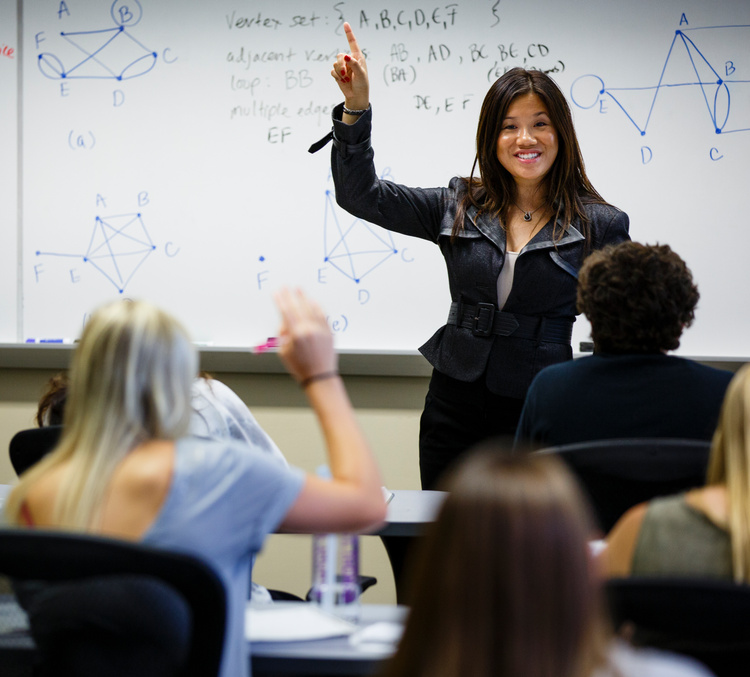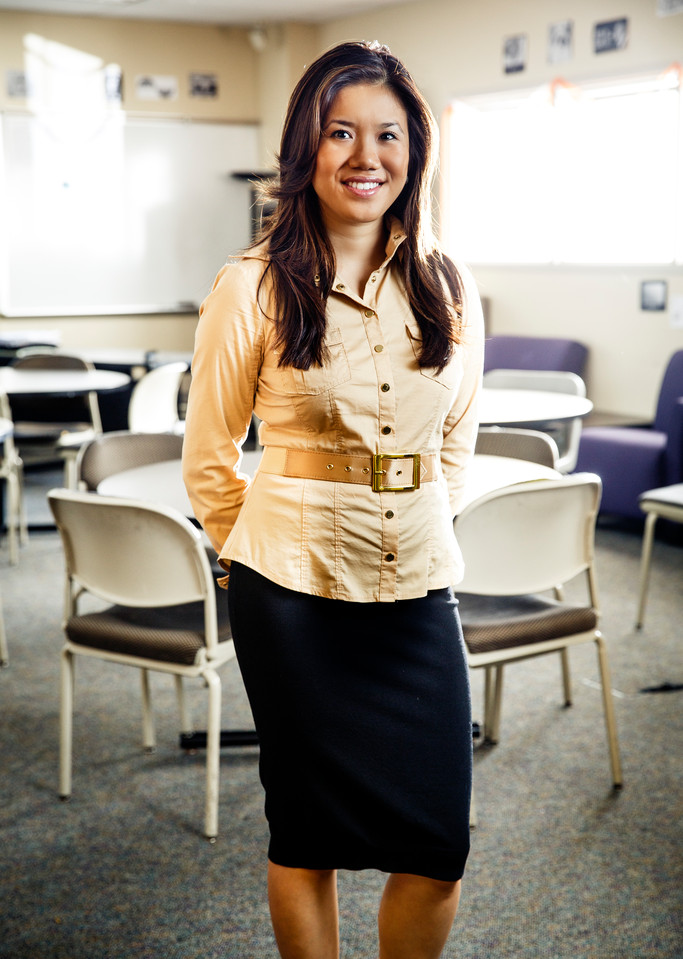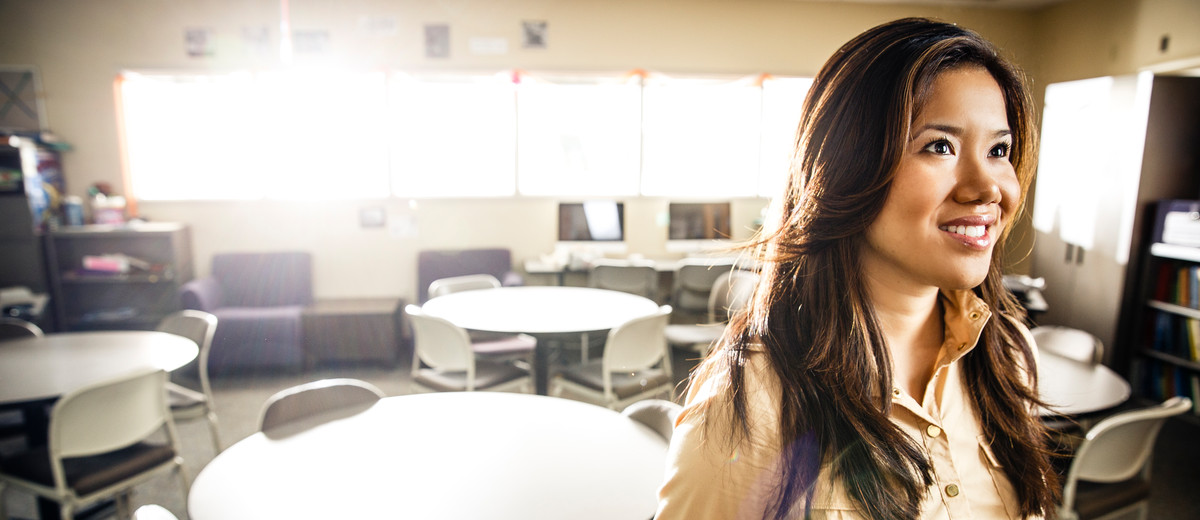For Winger Chidthachack, a high-ranking Army official in Communist Laos, the decision to leave was a difficult one. After saving money for three years, Winger, his wife, Bounmy, and their two daughters began their journey.
Winger paid a Lao guard to keep them safe as they crossed the border into Thailand, bringing only two bags of clothing, a blanket and a tiny sum of money.
Crossing the Mekong River was extremely dangerous as any Laotians found across the border in Thailand would be deemed illegal and shot or beaten to death. The guard instructed the family to hide beneath palm leaves under banana trees along the river for a night and avoid discovery at all costs.
The family then was herded into trucks, driven for 12 hours and dropped at Nakhon Phanom Refugee Camp in Thailand. For two years, the Chidthachack family lived in the camp, with only an outhouse and a cement bath tub for amenities. They began selling snacks made from cow skin, and eventually, her parents borrowed some money to convert their tiny business into a small market, where the Chidthachacks sold drinks and curry soup with rice vermicelli noodles.
Despite the tiny income, her family was relatively fortunate; all around them families relied on children to sell crack cocaine to make money.
Sousada Chidthachack, the third of three daughters, was born soon after in a nearby hospital. Her birth, she said, marked the end of their stay at the camp. Her family had saved enough money to move to the Philippines for six months to learn to read and write English. Finally, determined to complete their journey and have a better life, the family made it to the United States in 1986.
“My mother wanted her children to go to school,” Chidthachack ’06 said, explaining that in Laos women were expected to stay home and do housework instead of becoming educated. Her mother was shamed for attending school and dropped out in third grade. This made her more determined than ever to ensure that her daughters had more opportunity, Chidthachack said. “So the story of me in academia was a long time coming. ... I’ve always thought that I had to go all the way. Because she couldn’t.”
Chidthachack is working on her Ph.D. in math education at the University of Minnesota, and already has five years of teaching math in K-12 schools. And she is excited about returning to St. Thomas this fall to begin teaching as an adjunct instructor in the Math Department.

Chidthachack teaches a class in O'Shaughnessy Science Hall.
Yet the path to this new position at her alma mater was not always clear, Chidthachack said. In fact, a career in math wasn’t even on her radar when she arrived on campus for her undergraduate studies in 2002. Not only did she have her sights set on business and journalism degrees, but she had hoped to attend the Carlson School of Management at the University of Minnesota instead.
“Looking back, [coming to St. Thomas] was the best thing that’s ever happened to me,” Chidthachack said. “I wanted to go to college to see the world, and as someone who comes from the Projects [government subsidized housing] and a working-class background, that was really important to me.” Chidthachack was a Spanish minor, a cheerleader and a social butterfly, and took math classes for fun each semester because she excelled in them.
While the math classes seemed like enjoyable GPA boosters for Chidthachack, to math professor Cheri Shakiban, Ph.D., they were serious indicators of talent. The two were introduced during Chidthachack’s sophomore year, and according to her, they “hit it off right away.” Shakiban served as both a mentor and a guide, eventually persuading Chidthachack to pick up a second major in math because of her strength and love for mathematics.
“I have always been interested in supporting underrepresented minorities, inspiring them to go into math-related fields,” Shakiban said. “One such talent was Sousada.”
An immigrant and refugee herself, Shakiban could relate to Chidthachack on a far more personal level than most. With Shakiban’s help, Chidthachack received a National Science Foundation scholarship to help pay for her math degree.
With her new path established, Chidthachack was motivated to become a math teacher and pursue a degree in education.
“I definitely had some struggles,” she said. “But it never occurred to me that I couldn’t do math or that math was not for me. I have been taught by female math teachers my whole life. Because I had that really solid foundation, I never thought twice about, ‘Is this for me?’ That was something that I was thankful for – that I had this female mathematician, Dr. Shakiban, as a mentor and someone who took me under her wings.”
Chidthachack aims to do the same for her students as she begins teaching at St. Thomas this fall, adding her own flair and emphasis on hard work, and focusing on encouraging students who are what she calls “mislabeled.’’
Often students are sorted as early as middle school into groups that label them as “math minded” or not – labels that are often premature, Chidthachack explained.
“One of the messages I really want to tell my students is, ‘Yes, you can be naturally smart at it and do well in math. But most of the people who can sustain themselves and do well are the people who are persistent and work hard. That’s sort of what brought me here today – working hard through my ESL classes and my math classes – and having a really good attitude about education and about life.”
Like Shakiban, Chidthachack is especially passionate about supporting females and minorities in the math field, noting that she aims to help prevent young females, students of color and marginalized students from being overlooked because of the way the system is set up.
Melissa Loe, Ph.D., math professor and assistant chair of the department, agrees that encouraging females and minorities is a priority. “I think it’s important for students to see people who like what they are doing,” Loe said. “If all they see are white males in math and science and engineering, I don’t think females or people of color are going to want to pursue that. Just by being a female in mathematics ... and being interested in students and working hard for them and with them ... that sends a powerful message: that we are on the way to overcoming barriers and ceilings for women in the sciences.”
Chidthachack, who also tutors elementary to college-age students on the weekends, said, “One of the things that brings me the most joy is when a student says, ‘Wow! I actually really like doing this. I can’t believe we’re doing math.’”
She hopes to get a similar reaction from the students in her new class this fall, Math For All Purposes. Chidthachack says the class will be one of the larger classes on campus, because students are placed in it to fulfill their math requirement. The class will be made up of non-science majors and elementary education majors – exactly the sort of students she works with best. 
Although Chidthachack doesn’t have much down time, she says she’s perfectly happy doing what she does best: socializing, doing math and sharing her story with others. As a Page Scholar and fundraiser for the Page Education Foundation, she speaks regularly at events. She also has done research with two grants: one to teach in Thailand and one to study the educational model in Brazil.
All this has prompted her to write a memoir titled, The Lesson is Never Just a Number: A Math Teacher’s Journey from the Projects to Pursuing a Ph.D. The book is still in the works, but Chidthachack informally already has published a few parts of it on Facebook. While the memoir discusses her life story, it also highlights other talented people in the Twin Cities who have remarkable backgrounds and are making a difference. Already, she said, it has received overwhelming positive feedback.
“If you follow your passion, you find your purpose,” Chidthachack said. “And this is my purpose: to talk about how education opens so many doors.
“I have this message that I want to share. I have this story that says, ‘Here’s where I’ve started, here’s where I’m at now because somebody gave me a chance.’”
Read more from St. Thomas magazine.







